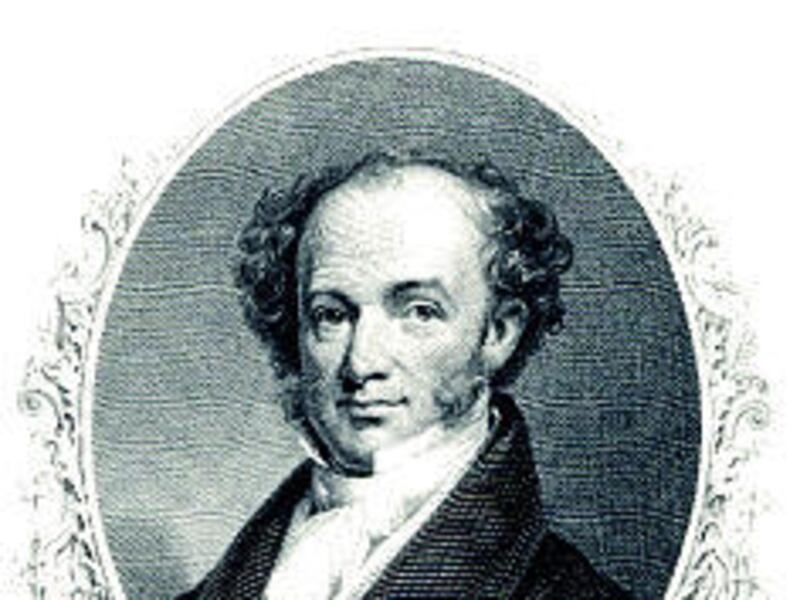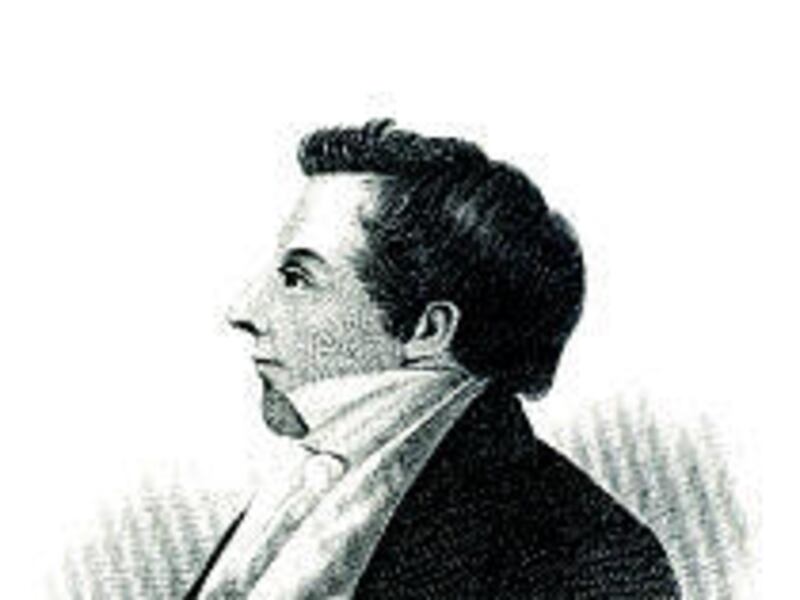WASHINGTON — In late 1839, Joseph Smith, leader of the still-fledgling Church of Jesus Christ of Latter-Day Saints, arrived in the nation's capital to petition President Martin Van Buren to help end the persecution of church members forced from their Missouri homes.
He left disappointed and, according to the official church history, with Van Buren's now-infamous words ringing in his ears: "Your cause is just, but I can do nothing for you."
The man revered by millions today as a prophet returns triumphantly to Washington, D.C., today and Saturday, the subject of a two-day international academic conference at the Library of Congress titled "The Worlds of Joseph Smith."
"We certainly hope Joseph Smith's reception in Washington will be better this time than it was last time," said John W. Welch, a professor of law at Brigham Young University and editor of BYU Studies. "We think it will be."
Many of the nation's top Smith scholars, some members of the church and others who are not, will participate in five sessions over two days that will examine the theological impacts, accomplishments and legacy of Joseph Smith since his birth 200 years ago.
No tickets remain for any of the sessions.
"In religious studies programs around the country, we are seeing a much greater interest in the life and teachings of Joseph Smith, and academic programs are seeing the Mormon experience and teachings of Joseph Smith as being worthy of careful study," Welch said. "They are finding things in the Joseph Smith legacy to be of intense interest to them."
The conference is part of a yearlong celebration by the church of the bicentennial of Joseph Smith's birth in December 1805 in Vermont.
By December 2005, the public should get its first glimpse of a 12-volume publication of Joseph Smith's papers, diaries and personal writings, all part of the Joseph Smith Papers Project that has been endorsed by the National Archives.
The project is sponsored by the Joseph Fielding Smith Institute for Latter-day Saint History at BYU and LDS Church Archives, and it will include materials now held by the Chicago Historical Society, Yale University, Community of Christ and other repositories, according to a BYU release.
The National Archives endorsement "reassures libraries and scholars that this project has been undertaken according to the highest scholarly standards," said Ronald Esplin, executive editor of the project. "We're confident that the quality of the papers will stand on their own."
The Library of Congress conference is intended to strike that same academic note with scholars who will be critically examining different aspects of Joseph Smith's life and legacy.
The event was inspired by a recent tricentennial conference at the Library of Congress on the life and teachings of the famed Puritan preacher Jonathan Edwards. The Joseph Smith bicentennial conference came together through the combined efforts of Gerald McDermott of Roanoke College in Virginia, Robert Millet of BYU and James Hutson, chief of the manuscript division at the Library of Congress.
Hutson visited BYU in 2002 as part of an exhibit for the 2002 Winter Games titled "Religion and the Founding of the American Republic," which laid the groundwork for a joint BYU-Library of Congress conference on Joseph Smith.
"Joseph Smith was very committed to preaching gospel to all the world, and he encouraged public education and learning on the part of all people in the world," Welch said. "The Library of Congress is one of the great institutions of learning that is open to the entire public, and it is consistent we would honor Joseph Smith and study his life at Library of Congress."
Among the topics to be considered:
"Joseph Smith's Many Histories," by Richard L. Bushman, with responses by Robert Remini, Richard T. Hughes and Grant Underwood.
"Joseph Smith and the Recovery of Past Worlds," by Terryl L. Givens, with responses by Margaret Barker, John E. Clark and John W. Welch.
"Joseph Smith in a Personal World," by Elder Dallin H. Oaks of The Quorum of the Twelve.
"Joseph Smith Challenges the Theological World," by David Paulsen, with responses from Richard Mauw, Randall H. Balmer and Robert Millet.
"Joseph Smith and the Making of a Global Religion," by Douglas J. Davies, with responses from Gerard McDermott, Jan Shipps and Roger R. Keller.
In 1839, Joseph Smith's whirlwind visit included "preaching" to some members of Congress and meeting with newspaper editors — kind of the same approach used in Washington today to lobby Congress and bend the media's ear.
And even though Joseph Smith left Washington frustrated, Remini writes in his book, "Joseph Smith," that the trip opened the young prophet's eyes to a bigger world beyond the frontiers of Ohio, Missouri and Illinois.
"Here he was tending his flock scattered in different parts of the world, meeting with the president of the United States, and now receiving national attention in the newspapers for what he had created in just a few short years," Remini wrote.
With the church well into its second century, even the Library of Congress finds such a man worthy of scholarly attention.
E-mail: spang@desnews.com


